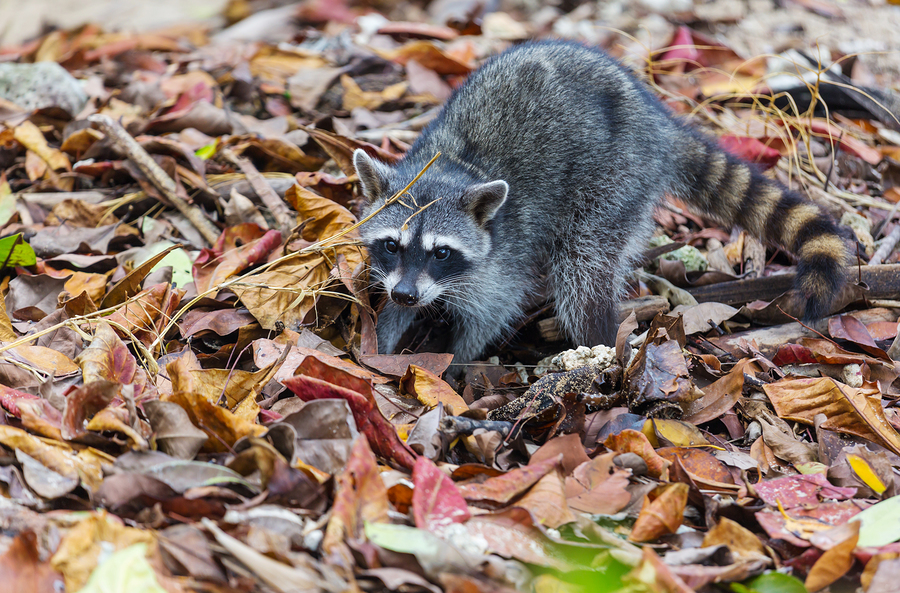Wild raccoons are common carriers of various infectious and transmittable diseases. These maladies are unfavorable ailments to contract and treat. In humans, most of these communicable diseases are treatable, but nonetheless painful and unpleasant. In pets, the more serious infections are difficult to treat and are sometimes incurable.
Continue reading to learn some interesting and helpful facts about common transmittable raccoon diseases, and who to call to remove nuisance raccoons from your residential or commercial property.

Rabies Virus
Almost everyone has heard the term, “rabies”, before. If you have seen ravenous dogs foaming at the mouth on television, this is most likely the directors take on a rabid animal. The truth is that rabies is not a disease to brush off as a light matter. It is a very real and common threat to our outdoor pets, as well as, us and our children. The rabies virus can be transmitted through saliva or other bodily secretions such a blood. If mixed or ingested with another person or animal’s system, the disease can be born and can also be fatal.
Rabies vaccinations are available to the public and for pets. It is strongly suggested to take advantage of such vaccinations; especially if you have kids and pets, and live near wooded areas or communities. Other treatments include several infections, shots, immunizations, and medication. Unfortunately, in animals, rabies is almost always fatal.
Leptospirosis Bacterial Infection
The bacterium known as Leptospirosis is another infection that can be transmitted by wild raccoons. This bacterium is carried in raccoon urine, and can be accidentally digested or contacted by humans and pets. Most of the time, contaminated water that comes into contact with the skin, eyes, nose, throat, or mouth is how the infection in contracted.
The infection causes influenza-like symptoms such as fever, core throat, coughing, and fatigue. It can also cause serious liver and kidney problems, which is why it is important to seek treatment as soon as you are aware there is something wrong. This disease does not have to be fatal so long as preventative care and treatment are implemented.
Baylisascaris Infection (Roundworm)
Roundworm is a very unpleasant disease that is also commonly carried and spread by wild raccoons. The Baylisascaris eggs are laid in raccoon feces, and spread by consumption or contact. People and animals can unintentionally swallow these eggs in water or soil. Because of this, children who play outside and pets are higher at risk for roundworm infection. Symptoms include fatigue, loss of muscle control and coordination, dizziness, and at worse stages, coma or blindness. Although this infection is rare to contract, a large percentage of North American raccoons are carriers of this bacterium.
Indianapolis Raccoon Removal and Control You Can Trust
Call 317-535-4605 for Indianapolis raccoon removal and control services you can trust. We are DNR licensed and insured nuisance wildlife removal contractors who offer a wide range of raccoon removal and control services, including raccoon cleanup, raccoon proofing, minor restorations for raccoon damages, and more. Request a free estimate or emergency service, today.

